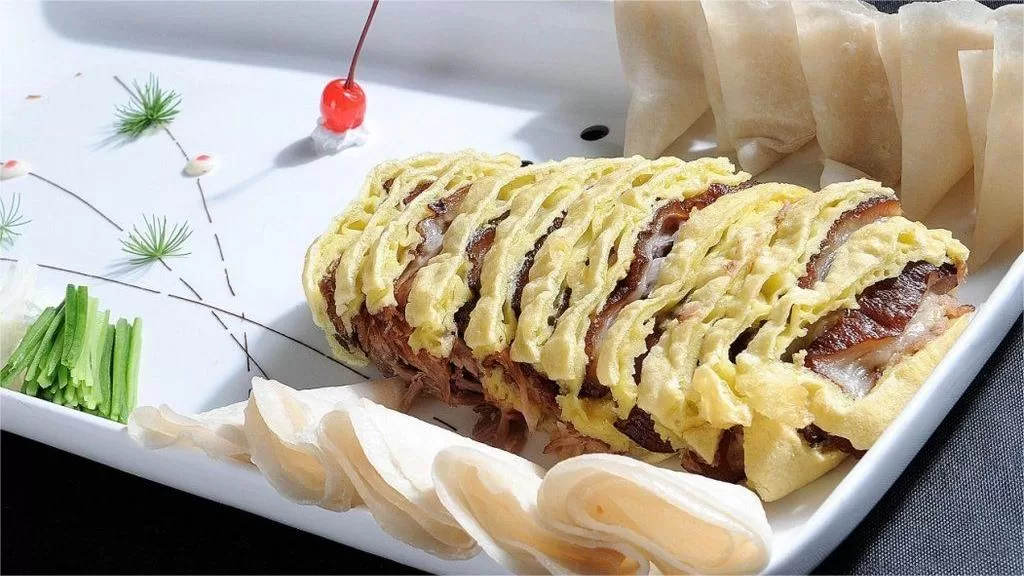Guo Bao Zhou Zi (锅包肘子), also known as “Crispy Pork Elbow,” is a traditional and iconic dish hailing from the city of Baoding in Hebei province, China. This culinary masterpiece has a history spanning over 140 years and is celebrated for its exquisite blend of textures and flavors.
Taste
The dish is characterized by its remarkable contrast between the crispy, golden-brown exterior and the tender, succulent meat within. It is not only delectable but also remarkably fragrant without being overly greasy, making it an excellent choice for both dining in and on the go. When served with fresh scallions and savory soybean paste, it becomes a truly unique and delightful culinary experience.
Origins
The origins of Guo Bao Zhou Zi can be traced back to the Qing Dynasty, a time when Baoding served as a crucial stop for scholars on their way to the imperial capital, Beijing, for the imperial examinations. Wealthier scholars often brought their own provisions for sustenance during the long and arduous journey. However, the foods they carried, such as preserved meats and pork elbows, were oily and inconvenient to transport.
Recognizing the need for a more travel-friendly option, the innovative chefs of Gaoyang County in Baoding set out to refine their cooking techniques and devised “Guo Bao Zhou Zi.” This dish quickly gained popularity, becoming a staple for aspiring scholars traveling from Baoding to Beijing. It was celebrated for its convenience, deliciousness, and ability to withstand the rigors of the journey.
Development and Prevalence
As word of this delectable creation reached the imperial court, its reputation for not only its taste but also its purported beauty and health benefits began to spread. Guo Bao Zhou Zi soon found favor among the emperors and their concubines. Empress Dowager Cixi, in particular, had a deep affection for this dish. Her praise of it was so effusive that she requested a renowned chef from Baoding, Wang Laokun, to prepare it exclusively for her in the palace. She also tasked Wang Laokun with training a successor to ensure that the art of making Guo Bao Zhou Zi would not be lost. Even after Wang Laokun’s retirement at the age of 70, he continued to make this dish in Baoding.
Preparation
The preparation of Guo Bao Zhou Zi involves simmering cleaned pork elbows in water until they are partially tender, infusing them with the flavors of Sichuan peppercorns, star anise, scallions, and ginger. The meat is then stewed over low heat until it reaches a perfect tenderness. Finally, it is coated in a starchy batter made from glutinous rice flour and deep-fried to a luscious golden-brown hue before being sliced and artfully presented, topped with a fragrant blend of five-spice seasoning.
Conclusion
Guo Bao Zhou Zi’s enduring legacy, from its humble origins as a scholar’s travel snack to its royal patronage, showcases its enduring appeal and culinary excellence. It is a testament to how a regional delicacy can transcend time and borders to become a beloved culinary treasure.


